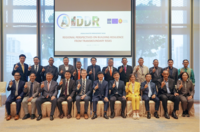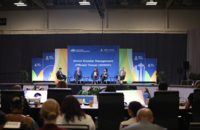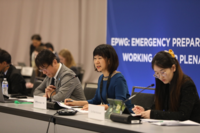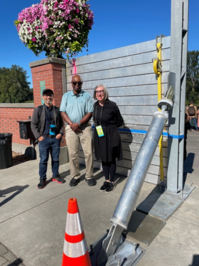21 August 2023 (Singapore)
ADRC participated in the first ASEAN Interregional Dialogue on Disaster Resilience (AIDDR) held on 21 August 2023 in Singapore. Adopting the theme, "Regional Perspectives on Building Resilience from Transboundary Risks," AIDDR convened regional organizations in Asia-Pacific region to explore strategies and current approaches to understanding, managing, and reducing transboundary disaster risks and their impacts on other emerging disaster risk issues. AIDDR aimed at achieving two key objectives:
1) explore potential avenues for fostering collaborative efforts between regional organizations on DRM, and
2) lay the groundwork for establishing interregional partnerships and collaboration with a specific focus on knowledge exchange and capacity building.
Speaking on behalf of ADRC, Dr Potutan mentioned that one of the challenges in managing transboundary disasters is that the disaster risk management (DRM) systems of impacted countries usually differ, such as protocols and logistical approaches. In this context, ADRC facilitated cooperation among its 31-member countries by providing a common platform for:
1) information-sharing on transboundary risks, such as assigning a universal identification of transboundary disasters using the GLIDE number system; and
2) early warning of transboundary risks using satellites, particularly through the Quasi Zenith Satellites System (QZSS) and Sentinel Asia.
Based on the discussions at the AIDDR, the ASEAN Secretariat indicated to facilitate the following next steps:
1) continue the inter-regional dialogue among regional organizations to strengthen collaboration;
2) conduct capacity mapping of regional organizations to inform initiatives for greater cooperation and synergy; and
3) pursue proposal for collaboration in the areas of data sharing, early warning, and knowledge exchange.
(2023/08/28 15:00)








